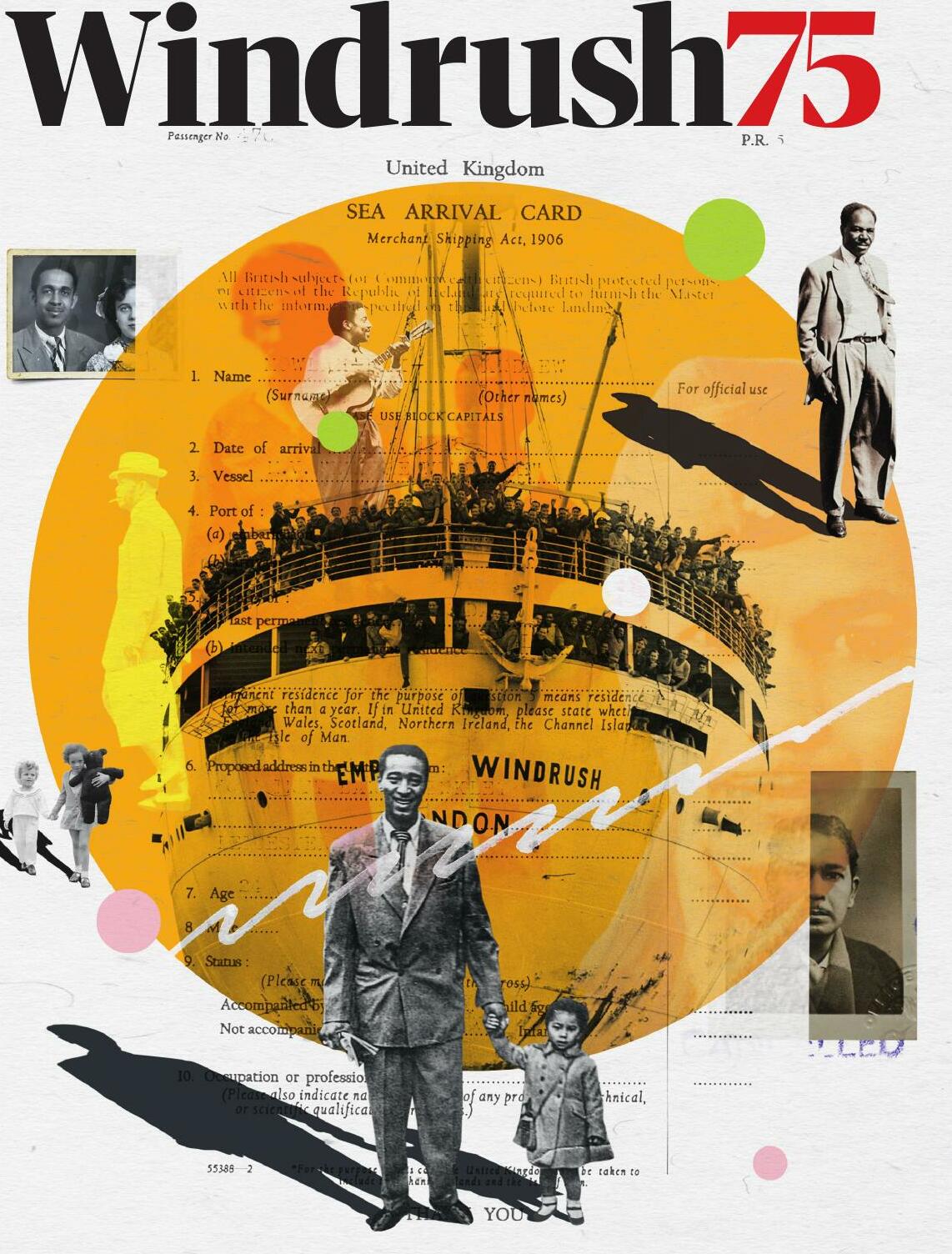
ON THE DAY EMPIRE WINDRUSH ARRIVED IN BRITAIN IN JUNE 1948, 11 Labour MPs sent a letter to the prime minister, Clement Attlee, proposing that there should be controls on black immigration.
The British people were "blest by the absence of a colour racial problem", they wrote, adding: "An influx of coloured people domiciled here is likely to impair the harmony, strength and cohesion of our people and social life and cause discord and unhappiness among all concerned."
The arrival of the ship, carrying about 500 people from the Caribbean, had already been the subject of an anxious debate in parliament. The Daily Express described its approach as "a shipload of worry".
But within a few years, for many of the passengers the huge significance of that journey had receded to such an extent that they did not tell even their children they had arrived in Britain on that ship.
Mel Gaynor, the musician best known as the drummer for Simple Minds, had no idea his father, George, was a passenger on Empire Windrush until long after his death. "My father didn't talk about it, which feels sad now," he says.
Sheine Peart, a university lecturer, only began to appreciate the importance of her father's journey when a teaching colleague was awestruck when she mentioned it in passing. "She said: 'He came over on Empire Windrush? That's like touching history."
During their childhoods, the huge cultural import of their parents' journey was not in the least obvious to many children of Windrush passengers.
"It wasn't seen as a particularly historic. It would have been like talking about a flight you've taken. They didn't realise it was such a momentous event," says Deyon Johnston, director of a recruitment company, whose father, Clinton Johnston, was on the ship.
It is only in later life the children of the Windrush passengers have begun to appreciate the enormity of the decision made, usually by their fathers, to emigrate to the UK.
This story is from the June 30, 2023 edition of The Guardian Weekly.
Start your 7-day Magzter GOLD free trial to access thousands of curated premium stories, and 9,000+ magazines and newspapers.
Already a subscriber ? Sign In
This story is from the June 30, 2023 edition of The Guardian Weekly.
Start your 7-day Magzter GOLD free trial to access thousands of curated premium stories, and 9,000+ magazines and newspapers.
Already a subscriber? Sign In

No 298 Bean, cabbage and coconut-milk soup
Deep, sweet heat. A soup that soothes and invigorates simultaneously.

Cottage cheese goes viral: in reluctant praise of a food trend
I was asked recently which food trends I think will take over in 2025.

I'm worried that my teenage son is in a toxic relationship
A year ago, our almost 18-year-old son began seeing a girl, who is a year older than him and is his first \"real\" girlfriend.

BOOKS OF THE MONTH
A roundup of the best recent science fiction, fantasy and horror

Dying words
The Nobel prize winner explores the moment of death and beyond in a probing tale of a fisher living in near solitude

Origin story
We homo sapiens evolved and succeeded when other hominins didn't-but now our expansionist drive is threatening the planet

Glad rags to riches
Sarcastic, self-aware and surprisingly sad, the first volume of Cher's extraordinary memoir mixes hard times with the high life

Sail of the century
Anenigmatic nautical radio bulletin first broadcast 100 years ago, the Shipping Forecast has beguiled and inspired poets, pop stars and listeners worldwide

How does it feel?
A Complete Unknown retells Bob Dylan's explosive rise, but it als resonates with today's toxic fame and politics. The creative team expl their process-and wha the singer made of it all
Jane Austen's enduring legacy lies in her relevance as a foil for modern mores
For some, it will be enough merely to re-read Persuasion, and thence to cry yet again at Captain Wentworth's declaration of utmost love for Anne Elliot.